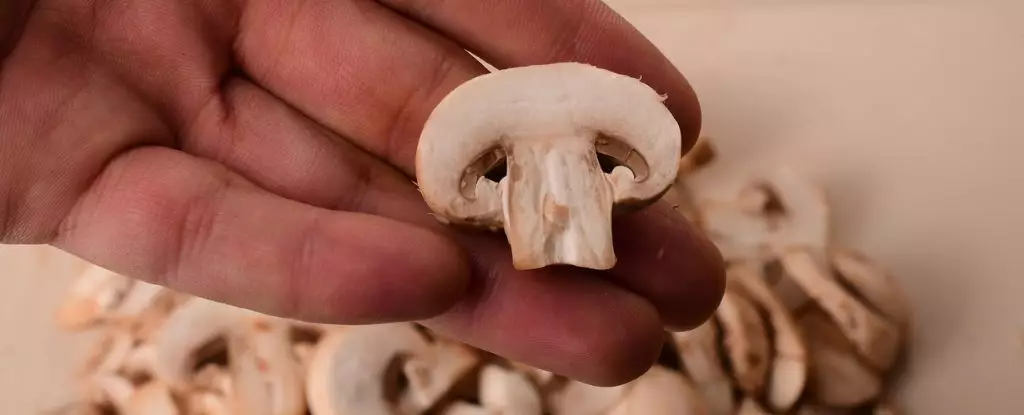In the world of nutrition and health, exotic ingredients often steal the spotlight, only to overshadow the goldmine of benefits found in more commonplace foods. One such candidate is the white button mushroom (Agaricus bisporus), the most widely cultivated edible mushroom globally. Traditionally overlooked as a mere culinary ingredient, emerging research is beginning to illuminate its potential therapeutic properties, particularly in the realm of cancer treatment.
Specifically, studies have pointed to the potential role of white button mushrooms in the fight against prostate cancer. While regulatory bodies like the U.S. Food and Drug Administration (FDA) have yet to approve any food as a bona fide cancer treatment, the encouraging findings from various research initiatives could pave the way for recognizing this humble fungus as a complement to conventional therapies.
Researchers at the City of Hope, a prominent cancer treatment and research institution, have taken on the challenging task of exploring the health effects of white button mushrooms. Their work is not merely speculative; they are methodically following FDA guidelines to establish a strong scientific basis for their assertions. Over the years, their studies suggest that these mushrooms may serve as a promising adjuvant therapy in slowing the progression of prostate cancer.
According to cancer biologist Shiuan Chen, the idea of “food as medicine” could soon become an evidence-based standard in cancer care. The implications are significant: integrating natural substances into treatment regimens may enhance the efficacy of existing cancer treatments and improve patient outcomes.
Prostate cancer, like many tumors, employs clever mechanisms to evade the immune response. A crucial player in this defensive strategy is myeloid-derived suppressor cells (MDSCs), immature white cells that have a remarkable ability to blunt the body’s natural defenses. In preliminary findings, white button mushrooms show promise in breaking through this immunological barricade, potentially restoring the body’s ability to combat cancer cells.
A previous Phase I clinical trial indicated that the mushroom extract could reduce toxicity profiles in prostate cancer patients, hinting at its potential to diminish circulating MDSCs. Remarkably, some trial participants experienced a decrease in prostate cancer biomarkers to low or undetectable levels following a regimen that included mushroom tablets taken daily.
A subsequent Phase II clinical trial and animal studies have reinforced the notion that white button mushroom extracts can delay tumor growth significantly and improve survival rates in mouse models. The outcomes suggest a dual action: a reduction in suppressor cells coupled with an uptick in anti-tumor immune cells among patients consuming the mushroom extract.
Yet, despite these promising results, the specific components of the mushroom responsible for these beneficial effects remain to be elucidated. The complexity of botanical products like mushrooms lies in their rich chemical makeup, which includes a plethora of soluble fibers, proteins, lipids, and phytochemicals. Each of these constituents could potentially contribute to anticancer effects, each working through different pathways to undermine cancer progression.
As researchers dive deeper, they underscore the importance of prioritizing safety and efficacy within clinical trials over pinpointing the precise mechanisms behind these effects. The multifaceted nature of the mushroom extract signifies that the interactions of its various compounds may hold the key to its anticancer potential, necessitating further research to unlock its full promise.
The journey towards mainstream acceptance of white button mushrooms as a therapeutic tool in oncology is far from complete. Nevertheless, the research spearheaded by institutions like the City of Hope is considerably shifting perceptions. As science increasingly endorses the idea that dietary components may confer significant health benefits, particularly in the realm of disease prevention and treatment, white button mushrooms stand poised to emerge from the shadow of their more exotic relatives.
While ongoing studies continue to iterate their findings, the notion that simple dietary changes, such as the consumption of mushrooms, may play a crucial role in cancer care could revolutionize treatment protocols and highlight the profound interconnectedness of diet and health. Only time and further research will reveal the true power hidden within this modest fungus, but the early indications are indeed promising.


Leave a Reply